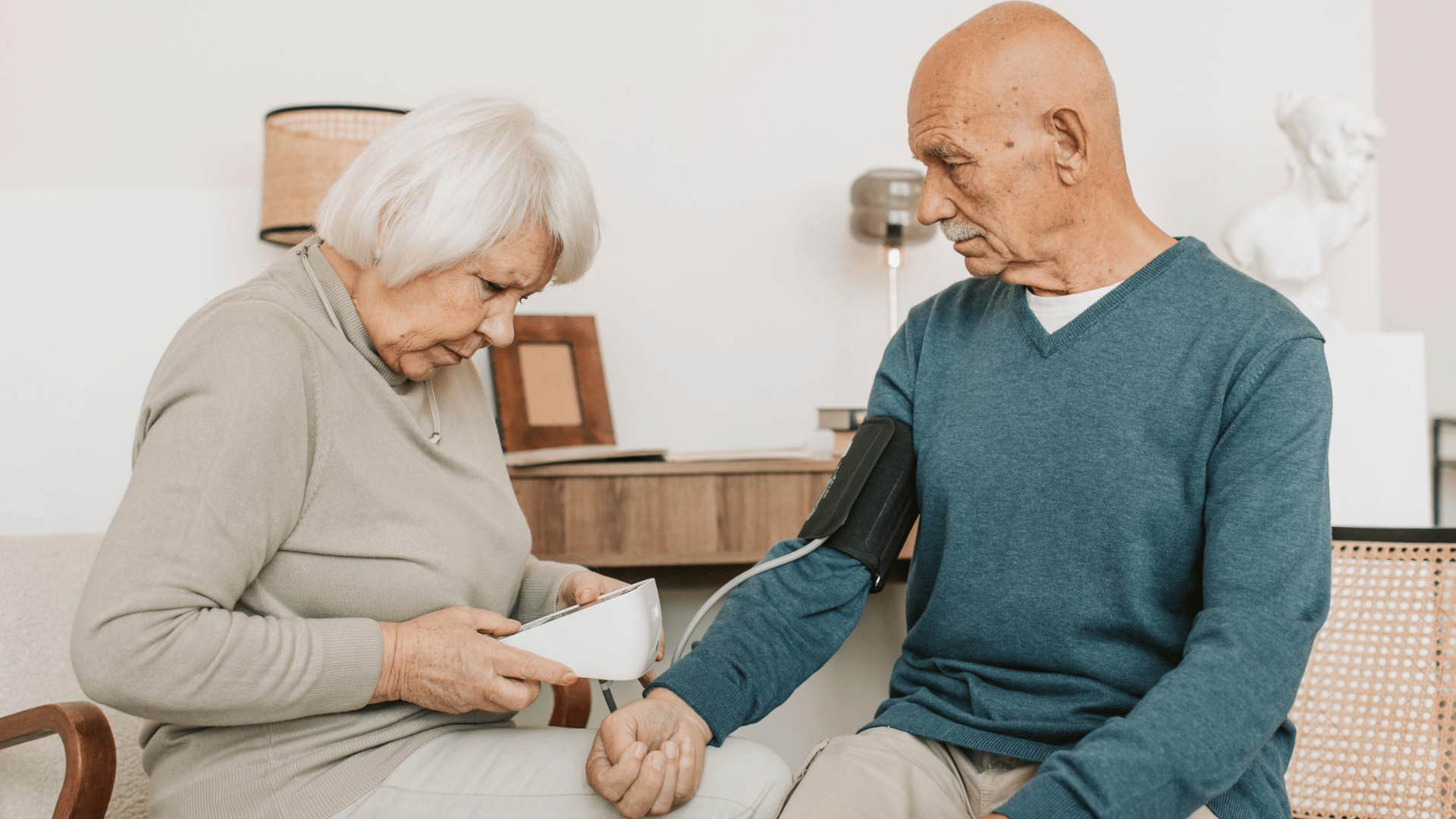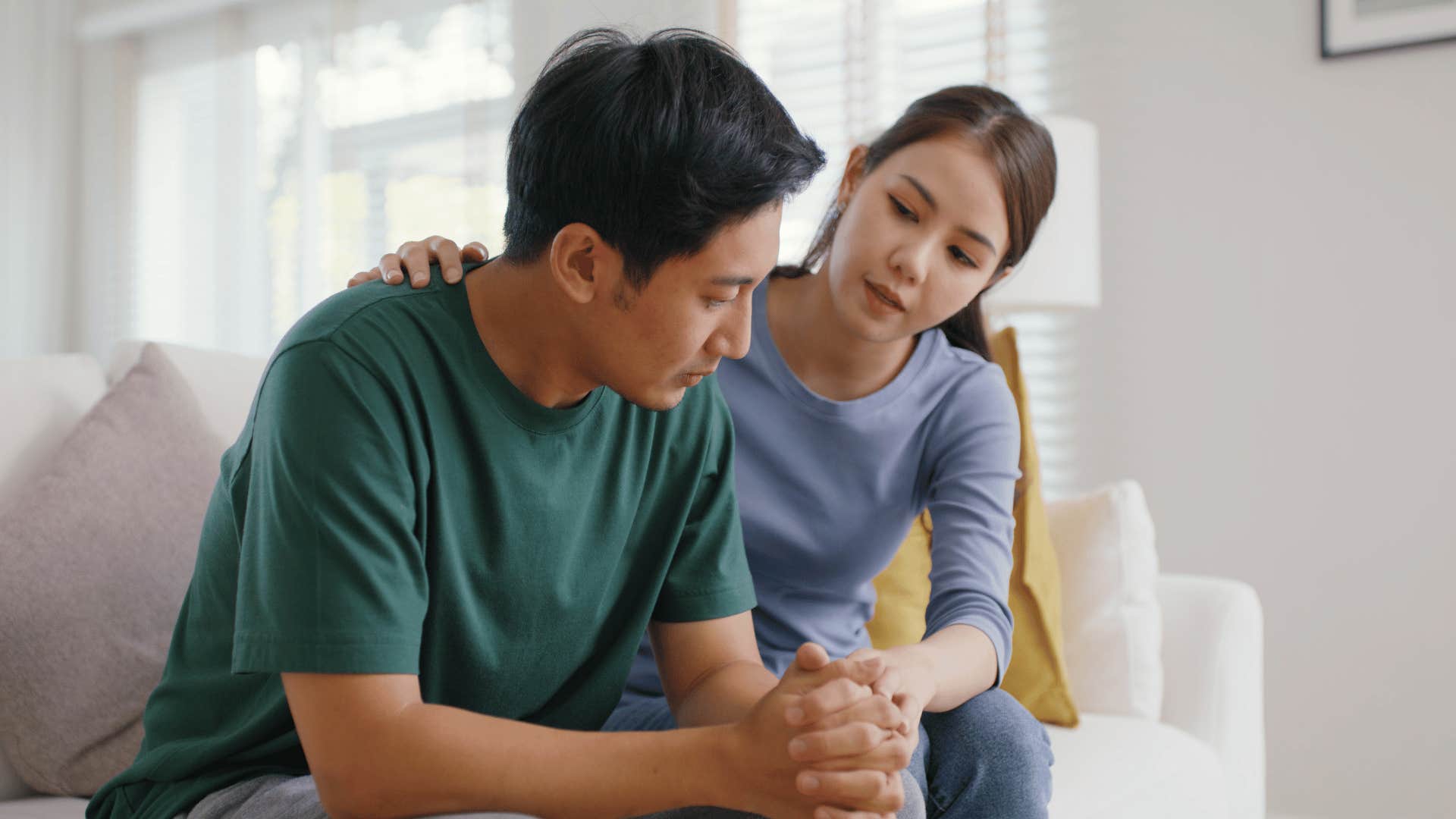8 Ways To Support A Partner With Chronic Pain, According To Clinical Psychologist
Chronic pain doesn’t have to be the be-all, end-all for your relationship.
 EmirMemedovski | Canva
EmirMemedovski | Canva Many clients that I see suffer from chronic pain or chronic medical conditions, often in addition to other disorders like depression, anxiety, PTSD, ADHD, and so forth. Also, I have experienced migraines since childhood, so I understand chronic pain from a personal perspective.
There are many great books and articles about how to deal with chronic pain, such as Healing Back Pain: The Mind-Body Connection (it’s relevant for all pain) and ones specific to IBS, migraines, back pain, chronic fatigue, and more. It is harder to find resources on how to support loved ones who suffer from these conditions.
Here are 8 ways to support a partner with chronic pain:
1. Be curious about your partner’s experience
 Vlada Karpovich | Pexels
Vlada Karpovich | Pexels
You may think that you understand what it’s like for your partner to live with chronic IBS, for example, but you may be far off the mark if you’ve never lived with it yourself. And even if you have IBS, too, you don’t know what your partner’s unique experience is like unless you ask.
What does your partner feel about having chronic pain? What are their hopes and fears about their condition? What do they want to try, and what will they never try again? Open discussions about your partner’s experience will bring you closer and will help you be more empathic.
2. Ask how you can help
 Chay_Tee | Shutterstock
Chay_Tee | Shutterstock
You may think that doing the grocery shopping is helpful, and maybe it is. But for a chronic pain sufferer with a verbal affirmation love language, it might be even more helpful if you would take some time during the day to tell her you love her and that you are not angry with her for missing your work party.
You have likely been dealing with your partner’s pain for a long time, and what made her feel good at the start of the relationship may be different now. The only way to know is to ask.
3. Be open about your own needs
 fizkes | Shutterstock
fizkes | Shutterstock
If you constantly squelch your own needs to support your partner, this is a recipe for resentment and marital conflict. Note that if you can be flexible, you have a much greater chance of getting your needs met.
Telling your husband with chronic back pain that you feel frustrated when he can’t accompany you on long hikes is not going to go over terribly well. However, if your need is for more closeness and companionship, think of alternative activities that your husband can do with you.
4. Help your children be kind and understanding to your partner
 fizkes | Shutterstock
fizkes | Shutterstock
If you have children, be sure that you help them understand that their mom/dad wishes they were able to spend more time with them or do more activities with them and regrets that they can’t. It is easy for kids to assume that their parent is laying in bed all day because they just don’t care much about coming to Little League if they are not explicitly told that this isn’t the case.
Men, in particular, can find it hard to verbally express their sadness that they are not able to do as many active things with their kids as they would like. If your partner has trouble expressing vulnerable feelings in this way, help them and your kids by verbalizing to them that, for example, Dad wishes he could play ball, but he is in too much pain.
Even if your partner is acting angry or apathetic rather than sad, there is no harm and only good in telling the children that they are sad to miss out on family time. Also, if your kids see you being kind and supportive to your partner, they will one day be a supportive and loving partner within their intimate relationships and will look for a supportive and loving partner themselves.
5. Encourage your partner’s attempts to work on their pain
 fizkes | Shutterstock
fizkes | Shutterstock
You may not be a big proponent of therapy, yoga, probiotics, or whatever your partner is trying, but be supportive. Alternative treatments can be very useful in dealing with chronic pain, and whatever works for your partner is great. If you act dismissive or mocking, this will only deter your partner from trying new things, which then makes them feel hopeless and stuck.
6. Research what your partner is dealing with
 fizkes | Shutterstock
fizkes | Shutterstock
If you’ve never experienced chronic pain yourself, then it can be very hard to empathize with your partner and easy to minimize or dismiss their distress. Reading books about pain, like Chronic Pain For Dummies (not kidding), can help you understand what’s going on and normalize what your partner is going through. Your partner will also likely feel touched and happy that you care enough to read up on their condition.
7. Also, research depression
 fizkes | Shutterstock
fizkes | Shutterstock
Depression is so common in chronic pain patients that many people think that the two are related on a biological level. Understanding depression can help you get a handle on why your partner may seem irritable, angry, detached, apathetic, or negative.
Understanding Depression is a useful book. Memoirs are great, too, if you want to understand on a deeper level. If you’re not a big book reader, then I’m sure there are Reddit forums on pain and depression that you can peruse.
8. Treat yourself with compassion
 Jihan Nafiaa Zahri | Shutterstock
Jihan Nafiaa Zahri | Shutterstock
If your partner suffers from chronic pain, you may need to support yourself, and if you don’t get it, your marriage will suffer. It can be sad and frustrating when plans are canceled because your partner can’t go, or when your partner feels too depleted to be affectionate (even verbally affectionate), or to have to drop everything to drive your partner to the doctor or take over childcare responsibilities.
If you feel burned out or resentful from being in the caregiver role, then I would highly recommend that you seek counseling and also be sure to take care of yourself in other ways, such as maintaining a regular exercise routine, keeping up with hobbies (even if only sometimes), and engaging with family and friends. Often, just discussing how you can support one another better can lead to improved closeness and connection, not to mention that marital closeness helps with chronic pain.
Dr. Samantha Rodman Whiten, aka Dr. Psych Mom, is a clinical psychologist in private practice and the founder of DrPsychMom. She works with adults and couples in her group practice Best Life Behavioral Health.
Internal links via Yourtango editorial team.

